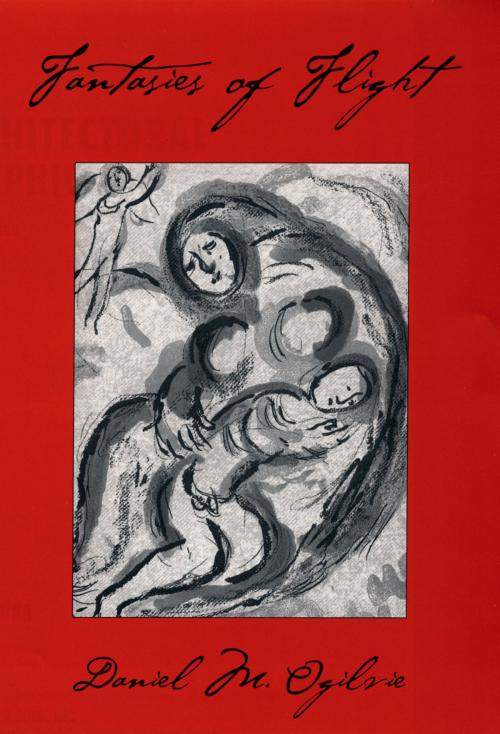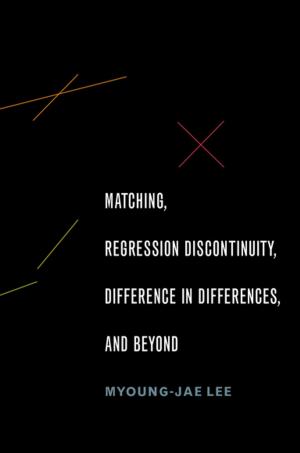Fantasies of Flight
Nonfiction, Health & Well Being, Psychology, Child & Adolescent, Child Psychology, Social Psychology| Author: | Daniel M. Ogilvie | ISBN: | 9780190289027 |
| Publisher: | Oxford University Press | Publication: | December 11, 2003 |
| Imprint: | Oxford University Press | Language: | English |
| Author: | Daniel M. Ogilvie |
| ISBN: | 9780190289027 |
| Publisher: | Oxford University Press |
| Publication: | December 11, 2003 |
| Imprint: | Oxford University Press |
| Language: | English |
Fantasies of Flight invigorates the field of personality psychology by challenging the contemporary academic view that individuals are best studied as carriers of traits. Daniel Ogilvie exchanges a heart-to-heart, case study approach to understanding human behavior for the current strategies of categorizing and comparing individuals according to their manifest traits. Ogilvie asks and endeavors to answer questions like "What were the psychological conditions that led Sir James Barrie to create a character named Peter Pan?" and "What were the dynamics behind the Marshall Herff Applewhite's conviction that a space ship, hiding behind the Hale-Bopp comet, would rescue him and his Heaven's Gate followers after they enacted a mass suicide pact in 1997?" Answering these questions requires him to resurrect "old" ways to think about personality and "old" strategies for studying individuals one by one. Early in the book, Ogilvie reviews the history of why intensive case studies were discredited in psychology and describes how Sigmund Freud's psychobiographical account of Leonardo da Vinci's fascination with flight inadvertently abetted critics of psychoanalytic psychology. He then performs a partial psychobiography of James Barrie and the origins of Peter Pan, followed by an investigation of Carl Jung, who fashioned the collective unconscious to serve as humankind's link to eternity. Arguing that personality psychology needs to become less insular, Ogilvie integrates information from the disciplines of developmental psychology and neuroscience into a theory regarding the latent needs that both Barrie and Jung sought to satisfy. The theory, including its emphasis on the onset of self and consciousness, is then applied to an array of well-known and obscure individuals with ascensionistic inclinations. Well written and accessible, but complex and scholarly, this volume will restore interest in the investigation of people's inner lives.
Fantasies of Flight invigorates the field of personality psychology by challenging the contemporary academic view that individuals are best studied as carriers of traits. Daniel Ogilvie exchanges a heart-to-heart, case study approach to understanding human behavior for the current strategies of categorizing and comparing individuals according to their manifest traits. Ogilvie asks and endeavors to answer questions like "What were the psychological conditions that led Sir James Barrie to create a character named Peter Pan?" and "What were the dynamics behind the Marshall Herff Applewhite's conviction that a space ship, hiding behind the Hale-Bopp comet, would rescue him and his Heaven's Gate followers after they enacted a mass suicide pact in 1997?" Answering these questions requires him to resurrect "old" ways to think about personality and "old" strategies for studying individuals one by one. Early in the book, Ogilvie reviews the history of why intensive case studies were discredited in psychology and describes how Sigmund Freud's psychobiographical account of Leonardo da Vinci's fascination with flight inadvertently abetted critics of psychoanalytic psychology. He then performs a partial psychobiography of James Barrie and the origins of Peter Pan, followed by an investigation of Carl Jung, who fashioned the collective unconscious to serve as humankind's link to eternity. Arguing that personality psychology needs to become less insular, Ogilvie integrates information from the disciplines of developmental psychology and neuroscience into a theory regarding the latent needs that both Barrie and Jung sought to satisfy. The theory, including its emphasis on the onset of self and consciousness, is then applied to an array of well-known and obscure individuals with ascensionistic inclinations. Well written and accessible, but complex and scholarly, this volume will restore interest in the investigation of people's inner lives.















